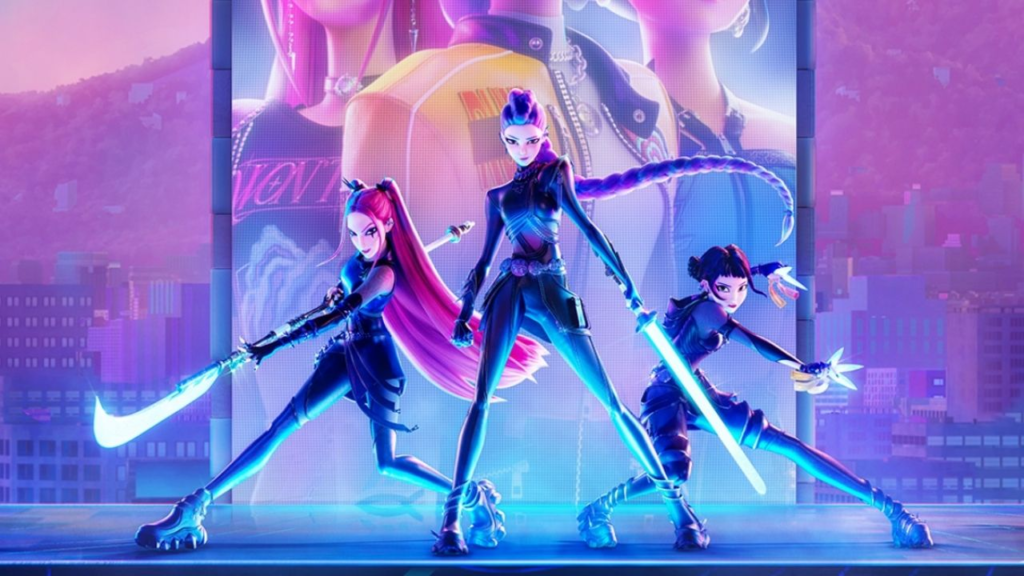K-Pop Demon Hunters is more than just a catchy phrase—it represents a fascinating blend of Korean pop culture with mythical storytelling. This cultural fusion combines the energy and style of K-Pop with the age-old legends of demon hunters, creating a new wave of entertainment that captivates fans worldwide.
In this article, we’ll explore what makes K-Pop Demon Hunters unique, how this fusion reflects cultural trends, and why it’s gaining popularity in the global entertainment scene.
What Are K-Pop Demon Hunters?
At its core, K-Pop Demon Hunters is a creative mix of music, storytelling, and fantasy. It draws from:
- The dazzling visuals and choreography typical of K-Pop idols.
- The traditional Korean folklore surrounding demon hunters (or “exorcists”).
- Modern fantasy narratives popularized in games, TV dramas, and comics.
Artists and creators blend these elements to deliver stories where idols fight supernatural forces, often reflected in their music videos, concept art, and live performances.
The Roots of Demon Hunters in Korean Culture
Demon hunters, or “bulgasari” and similar mythical figures, are common in Korean folklore. These legends often describe heroes or shamans battling evil spirits to protect people and restore peace.
These stories have been passed down through generations and are still popular today in dramas and literature. The demon hunter theme carries a sense of bravery, mystery, and spiritual strength.
Why K-Pop and Demon Hunters Make a Perfect Mix
Visual Storytelling and Performance
K-Pop is famous for its vibrant performances and strong visual identity. Combining this with demon hunter mythology allows for striking storytelling. The dark, supernatural themes contrast with the colorful and polished K-Pop aesthetics, creating something fresh and exciting.
Relatable Themes of Good vs. Evil
Demon hunter stories revolve around the classic battle between good and evil—a theme that resonates universally. K-Pop fans can connect with this through powerful lyrics, dramatic stage settings, and emotional narratives.
Engaging a Broader Audience
This fusion attracts both K-Pop fans and lovers of fantasy genres, broadening the appeal. It also introduces international fans to Korean cultural heritage in a modern context.
Examples of K-Pop Demon Hunters in Media
Several K-Pop groups and projects have started to incorporate demon hunter motifs:
- Music Videos: Some groups use dark, mystical imagery and storylines involving battles with supernatural beings.
- Webtoons and Comics: Stories featuring K-Pop idols as demon hunters appear in Korean webcomics, blending music culture with fantasy adventure.
- Gaming: K-Pop-themed games now include characters modeled as demon hunters, linking fan interaction with immersive gameplay.
The Cultural Impact of K-Pop Demon Hunters
Preserving and Modernizing Tradition
K-Pop Demon Hunters helps keep Korean folklore alive among younger generations by updating the themes with a modern twist. This fusion encourages cultural pride and education through entertainment.
Inspiring Creativity and Innovation
This trend pushes artists and producers to experiment with new concepts and storytelling methods. It also promotes cross-genre collaboration, inspiring fashion, dance, and visual art innovation.
Global Influence
As K-Pop continues to expand internationally, the demon hunter motif adds depth to the genre’s global narrative. It introduces fans worldwide to Korean culture beyond just music.
Challenges and Criticisms
While K-Pop Demon Hunters are exciting, there are some challenges:
- Cultural Misunderstandings: International audiences may not fully grasp the folklore origins, leading to misinterpretations.
- Over-commercialization: There’s a risk of the theme becoming a marketing gimmick rather than a meaningful cultural expression.
- Balancing Tradition and Modernity: Creators must carefully respect cultural roots while innovating for a global audience.

The Future of K-Pop Demon Hunters
Looking ahead, this cultural fusion is likely to grow with:
- More immersive content using AR/VR technology to bring demon hunter stories to life.
- Collaboration between K-Pop idols, storytellers, and game developers.
- Greater exploration of Korean folklore in global entertainment, helping bridge cultural gaps.
Conclusion
K-Pop Demon Hunters is a thrilling cultural fusion that combines the dynamic world of K-Pop with rich Korean mythology. It creates engaging stories of heroism and fantasy that captivate a global audience while honoring Korea’s traditional legends.
This trend highlights how culture can evolve and adapt in the digital age, blending the old and new to create something vibrant and meaningful. As K-Pop Demon Hunters continue to grow, they promise exciting innovations and deeper cultural connections for fans worldwide
Do Follow USA Glory On Instagram
Read Next – Supreme Court allows Trump to cut $783 million NIH DEI grants






